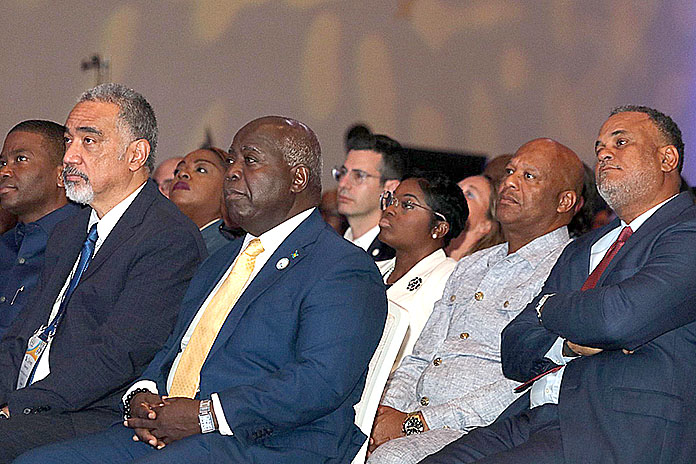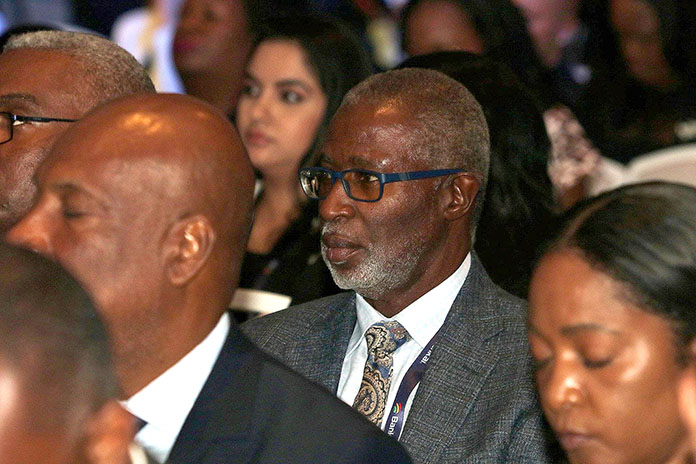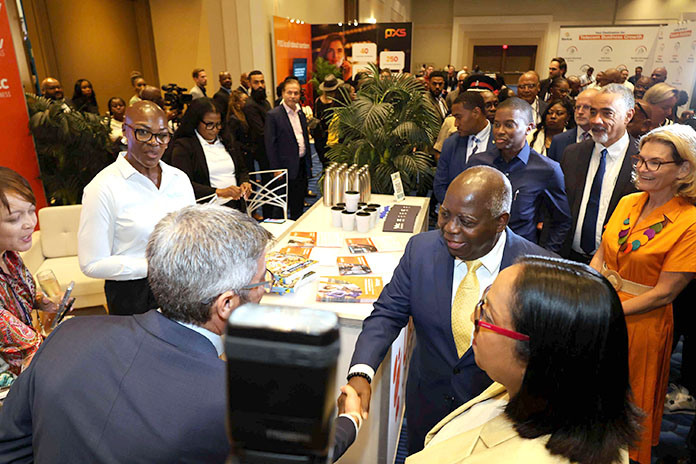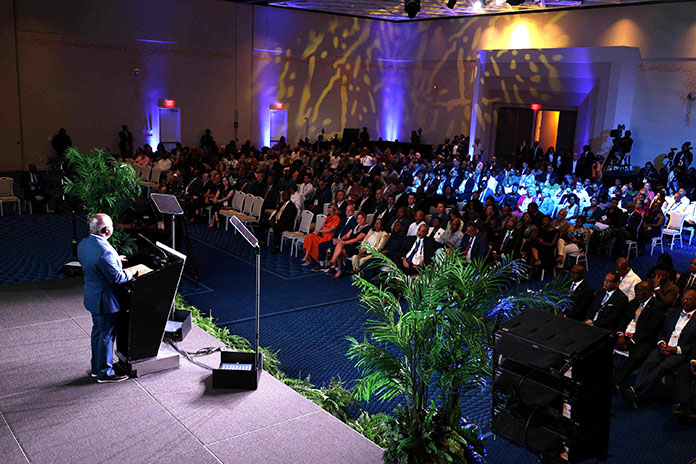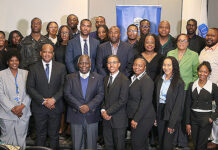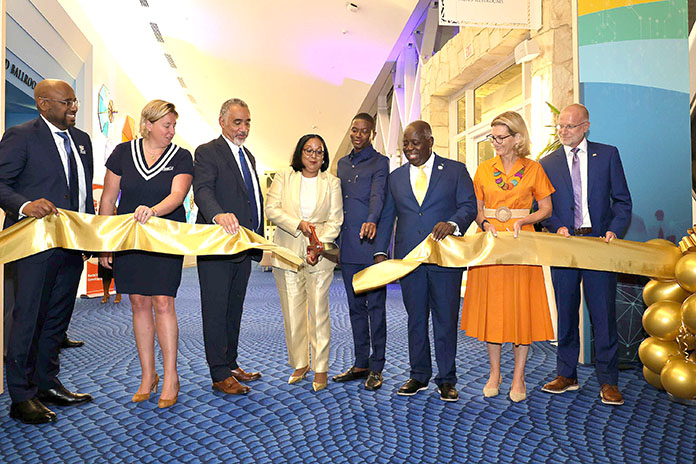
NASSAU, The Bahamas – During his Official Address at the Opening Ceremony of the 40th Caribbean Association of National Telecommunication Organisations (CANTO) Conference and Trade Exhibition, on July 13, 2025, Prime Minister and Minister of Finance the Hon. Philip Davis noted that, while the digital revolution promised so much, it also laid bare “the deep disparities between what is possible and what is currently real for too many of our citizens”.
“Across the Caribbean, there are still children who cannot access reliable internet to complete a school assignment,” Prime Minister Davis said at the event held at Baha Mar Convention Centre. “There are small businesses shut out of global markets because the infrastructure simply doesn’t exist. There are civil servants expected to deliver 21st-century services with 20th-century tools.”
“And if we are being honest with ourselves – if we are truly committed to the people we serve – we must admit that while the world is building faster, smarter, and more connected systems, we are still moving too slowly, too unevenly, too cautiously,” he added.
Among those present included Deputy Prime Minister and Minister of Tourism, Investments and Aviation, the Hon. Chester Cooper and other Cabinet Ministers; Prime Minister of Grenada the Hon. Dickon Mitchell and other regional senior Government officials; Secretary General of ITU Mrs. Doreen Bogdan-Martin; Commissioner of the US Federal Communications Commission (FCC) Brendan Carr; CANTO Chairman Dr. Delreo Newman; CANTO Secretary General Teresa Wankin; Chief Executive Officer Liberty Caribbean Inge Smidts and other representatives of event sponsors; US Embassy Charge d’Affaires Kimberly Furnish and other members of the Diplomatic Corps; CANTO Board Member and Bahamian John Gomez; and various local and international stakeholders.
According to the organization, CANTO is a non-profit association made up of operators, organizations, companies and individuals in the ICT (telecommunications) sector. The Association has a Caribbean focus as it relates to ICT issues for the region with a global perspective.
Prime Minister Davis pointed out to those in attendance that they were living through one of the most “profound shifts in human history”.
He said: “Artificial intelligence, quantum computing, blockchain – these are not distant possibilities. They are shaping global markets now, influencing public life now, redefining power now. And yet, at the same time, many of our nations are still grappling with the basics: ensuring rural communities have access to broadband, that schools have devices, and that citizens can interact with their governments without having to take a day off work.
Prime Minister Davis added: “This is not just a matter of development – it is a matter of, in my view, justice. Because when access to digital systems determines access to opportunity, exclusion is no longer just economic. It becomes structural. It becomes generational. It becomes a quiet, creeping injustice – robbing people of the right to fully participate in modern life.”
He pointed out that it was not a story of defeat.
“There is another side to this story, a story of what is possible when political will meets practical action,” Prime Minister Davis stated.
He noted that The Bahamas had proven that leadership in the digital space did not depend on size, but on vision and courage.
Prime Minister Davis said: “We became the first nation in the world to launch a central bank digital currency, the Sand Dollar, not as a symbolic gesture, but as a practical solution to a real problem: how do we ensure that people across a scattered archipelago of 700 islands can access safe, efficient, and modern financial services?
“We followed that bold move with the passage of the DARE Act – one of the world’s earliest and clearest attempts to regulate the digital asset space responsibly,” he added. “In doing so, we rejected the view that small states must wait on global consensus before acting.
“We proved that we can lead on our own terms, for our own people. This is what effective digital policy looks like: action rooted in equity, grounded in law, and aimed at building real opportunity.”
However, he said, isolated success was not enough.
“Because if some countries lead while others lag, we do not become a region of progress – we become a region divided,” Prime Minister Davis said. “And in a world as interconnected as ours, no nation can afford to advance alone.”
He added: “We are therefore called, not just to lead individually, but to act collectively; to build systems that are interoperable, secure, and inclusive; to invest not only in platforms, but in people — in the teachers who will train the coders, in the regulators who will govern the platforms, and in the young people whose ideas will power the next wave of innovation.”
He pointed out that all must also be clear-eyed about the dangers.
“We must also be clear: this is not simply about platforms or data storage – it is about security, sovereignty, and stability,” Prime Minister Davis stated.
He added: “Cybercrime is not a future threat. It is a present one. Misinformation, data exploitation, and digital surveillance are eroding trust and weakening democratic institutions. Our electoral systems are vulnerable. Our public databases are exposed. Our citizens are being targeted – not with bombs or bullets – but with falsehoods, with manipulation, with breaches of privacy that go unseen but cut deep. This is the nature of modern conflict – quiet, digital, and relentless.
“And if we do not build the legal, institutional, and technical frameworks to confront these threats now, then we will lose control of the very systems we depend on to function as sovereign nations.”
Digital colonization was not just about who owned the infrastructure, Prime Minister Davis pointed out.
“It is about who decides what is true, who has access to power, who profits from our participation, and who shapes the rules of this century’s economy,” he said.
“And if we do not secure our digital future, someone else will define it for us,” Prime Minister Davis added. “So the question before us is not whether the world is changing. It is whether we are willing to change with it – and whether we are prepared to do so with the urgency, seriousness, and moral clarity this moment demands.”
He continued: “We must act not simply because the technology exists, but because justice requires it; because no child should be left behind due to a lack of signal; no business should be locked out of opportunity because of where it is located; and no country, no matter how small, should be told that it cannot shape its own digital destiny.
“This is the time for resolve; for responsibility; and, above all, for leadership rooted in service to the people we are elected to serve.”
Prime Minister Davis pointed out that countries can choose to be a region that is ahead, or “we can continue, year after year, to fall behind”.
“There is no middle ground,” he stated. “The pace of global change is too fast. The stakes are too high. The costs of inaction are no longer theoretical. They are visible, measurable, and already being borne by the most vulnerable in our societies.”
“To be ahead means investing – seriously – in our digital infrastructure, in training teachers not just to teach literacy and numeracy, but to prepare students for the economies of tomorrow,” Prime Minister Davis noted. “To be ahead means ensuring our young people have access not just to devices, but to the education, mentorship, and capital needed to become creators – not just consumers – in the digital world.
“To be ahead means building regional resilience – not as a talking point, but as a common framework for cybersecurity, data protection, and cloud infrastructure that secures our sovereignty in a world where power is shifting from the physical to the digital.”
He stated that to be ahead also meant having the courage to confront the uncomfortable.
Prime Minister Davis asked: “Why are some of our best minds still forced to leave the region to find opportunity? Why are Caribbean innovators still struggling to access funding when the world is awash in capital for digital transformation? Why do we spend more time adopting external platforms than building our own?”
He told those in attendance that if they all wanted to lead, they all cannot simply copy models from abroad.
Prime Minister Davis said: “We must build systems that reflect our values, our realities, and our aspirations. We must stop asking: ‘Is the Caribbean ready?’ and instead ask: ‘What is required of us to lead?’.”
He stated that readiness was not a matter of capacity – it was a matter of will.
“There are small nations around the world, with fewer resources than ours, that have chosen to be laboratories for innovation, because they understood that leadership is not about size, it’s about seriousness,” Prime Minister Davis noted.
“We can be among them,” he added. “We must be among them.”
Prime Minister Davis said that the alternative of “drifting further into digital dependence, watching our economic margins erode, our young talent disengage, our public services falter was not just unacceptable, it was avoidable.”
“But only if we act now, and act together,” he stated. “Let this not be another moment where we admire the challenge but shrink from the responsibility.”
“Let this be the moment we say: the Caribbean will lead – not by default, but by design; not because we had more, but because we chose to do more with what we had,” he added.
